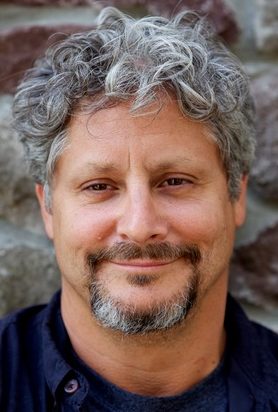By Victor Greto
Professor J.A. Leo Lemay looked cozy in his windowless corner office on the third floor of Memorial Hall, at the heart of the University of Delaware’s main campus.
Well-thumbed books, encyclopedias of philosophy, dictionaries of the history of ideas, dozens of volumes of Benjamin Franklin’s papers and various biographies sat within arm’s length of his desk.
Lemay himself was nestled among the scattered books and papers, sitting in comfortably rumpled clothes in a small chair in front of his computer. One of the country’s most renowned scholars of Franklin, he just received the 2003 Francis Alison Award, UD’s highest faculty honor. It recognizes scholarship, professional achievements and dedication.
Lemay smiled casually, ready to talk for hours about one of America’s founding fathers, the noted 18th-century writer, scientist and diplomat who has become the professional pursuit of his life.
One of the first things Lemay said was that he and Franklin both were born on Jan. 17 – the same day, give or take 229 years.
Lemay, 69, who grew up in Baltimore and has written dozens of scholarly books and articles, shares several traits with the man who some scholars have called the “first American.” He is a lover of literature and complex thought, and fascinated with science.
But LeMay, the H.F. du Pont Winterthur Professor of English Literature at UD, is foremost a scholar. The first two volumes of his projected seven-volume, 7,000-page biography of Franklin are about to be published by the University of Pennsylvania Press.
The work follows several recently published single-volume biographies of Franklin, including Walter Isaacson’s “Benjamin Franklin: An American Life,” Edmund Morgan’s “Benjamin Franklin” and H.W. Brands’ “The First American: The Life and Times of Benjamin Franklin.”
Lemay said all are fine authors, some more distinguished than others. Although he quibbled with many of their conclusions or assumptions, he said their books are just fine as far as they go.
But none goes as far as LeMay’s projected opus, the workmanlike culmination of his scholarly life, a project that may be completed by the time he reaches his 80s – about three years for each coming volume.
“I don’t expect it to be a bestseller,” Lemay said. “Libraries will definitely buy it.”
And it will be read 100 years from now, unlike today’s bestsellers, said his former student Carla Mulford, now an English professor of early American literature at Penn State University.
“He really knows all of Franklin’s written work,” Mulford said. “Instead of just studying the big stuff, he spends time sorting through Franklin’s stuff as a printer,” and everything else, for that matter.
Perhaps the bottom line to 7,000 pages of exploring the life of one of the best-known Americans is to show how complex Franklin’s thought really was, Lemay said. Franklin was as sophisticated as any of the thinkers of his era, including the French writer and philosopher Voltaire, who wrote “Candide,” and English philosopher John Locke.
The difference, Lemay said, was that Franklin “wants us to have that popular misconception that he doesn’t seem as formidable as someone like Voltaire, someone you might not want to know.”
That’s what happens when you write clearly, Lemay said, rejecting thickets of philosophical prose for plain American English. Franklin’s famous “Autobiography” has remained a bestseller for centuries.
Franklin was a pragmatic, middle-class American, interested in “everyday” things, from street cleaning to public libraries to fire companies, Lemay said. And he had a natural distaste for a labyrinth of theology and metaphysical musing.
What Lemay admires most about Franklin, however, lies still closer to the core of both men’s characters.
“He tried time and again to do good,” Lemay said. “He started each day saying, ‘What good shall I do today?’ and ended each day with, ‘What good have I done today?’ That’s what I respect most.”
